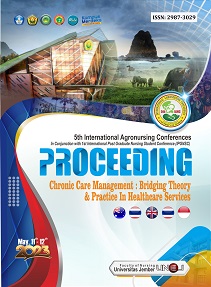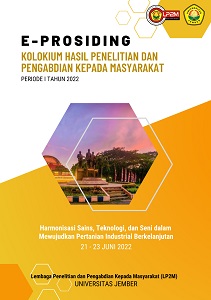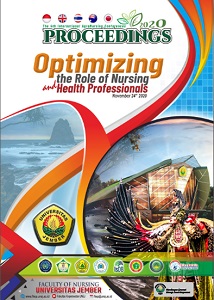Arcangelisia flava LEAVES ETHANOLIC EXTRACT SUPPRESSES CANCER CELL LINES VIA NON APOPTOTIC PATHWAY
Abstract
Arcangelisia flava is a potential candidate to bedeveloped as cancer chemoprevention agent. A.
flava was proven to exhibit antioxidant and cytotoxic
activity against MCF-7 breast cancer cell line. These
ability were suggested to be related to its alkaloid
content: berberine, palmatine, and jatrorrhizine
(Keawpradub et al., 2005). Although this plant is
stated as a rarely found species (Koran Jakarta,
2012), we could find it abudantly in Meru Betiri
National Park, Jember.
Our previous studies showed that A. flava leaves
increase the immune system in doxorubicin-treated
rats (Puspitasari et al., 2014b) with no signs of
toxicity based on sub chronic toxicity assay
(Puspitasari et al., 2014a). The A. flava leaves
ethanolic extract (EEAfL) had been proven to have
cytotoxic activity on HeLa, MCF-7, and WiDr cancer
cell lines with the IC50 value of 467 + 70; 136 + 17;
and 213 + 79 μg/ml, respectively. The activity was
selective on MCF-7 and WiDr, but not likely on HeLa
cell line (Puspitasari et al., 2015).
OBJECTIVES
This study was conducted to determine whether the
cytotoxic activity of EEAfL was occur via apoptotic or
necrotic pathway using flowcytometry annexin VFITC
method. The concentration used for the assay
were concentration approx. the IC50 and the IC75
based on previous study (Puspitasari et al., 2015).
Published
2017-01-27
How to Cite
PUSPITASARI, Endah et al.
Arcangelisia flava LEAVES ETHANOLIC EXTRACT SUPPRESSES CANCER CELL LINES VIA NON APOPTOTIC PATHWAY.
UNEJ e-Proceeding, [S.l.], p. 83-86, jan. 2017.
Available at: <https://jurnal.unej.ac.id/index.php/prosiding/article/view/3898>. Date accessed: 23 nov. 2024.
Section
General









